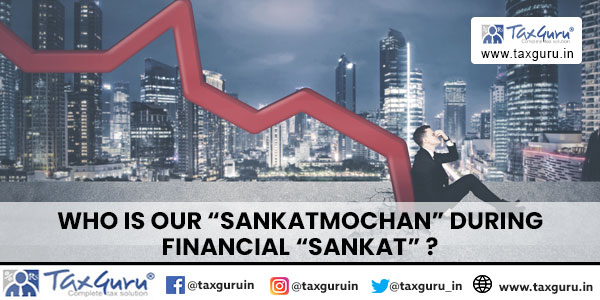Case Law Details
Brief of the Case
ITAT Chandigarh held In the case of M/s Amit Engineers vs. ACIT that it is a trite law that the only condition for the Assessing Officer to reopen the case is that for whatever reasons he has ‘reason to believe’ that income has escaped assessment. The phrase “reason to believe” has been defined in the Landmark judgment of the Hon’ble Apex Court in the case of Sheo Nath Singh Vs. ACIT (1971) 82 ITR 147 in which it was held that “The words “reason to believe” suggest that the belief must be of an honest and reasonable person based upon reasonable grounds and that the Income Tax Officer may act on direct or circumstantial evidence but not on mere suspicion, gossip or rumour.” There can be no dispute that the main ingredients for initiating reassessment proceedings are presence of material and live link between the material and the belief formed by the Assessing Officer, which makes the ‘reasonable belief’. Hence, reopening of assessment not valid in absence of any tangible material showing escaped income.
Facts of the Case
The assessee firm is having manufacturing unit located at Baddi and is engaged in manufacturing of rail coach components and railway electronic components. The firm’s branch in Mohali is trading in rail coach components and servicing of railway air conditioners to the Indian Railways. The assessee filed its return of income for assessment year 2011-12 on 30.9.2011 declaring income of Rs.5,00,130/- after claiming deduction under section 80IC amounting to Rs.4,04,27,570/- .The intimation under section 143(1) was issued to the assessee as on 23.7.2012.Thereafter, the Assessing Officer issued a notice under section 148 dated 14-6-2013 to reopen the case.
The Assessing Officer noticed that for the current assessment year i.e. 2011-12 being 6th year of the assessee’s business activities, it was eligible to get deduction under section 80IC of the Act @ 25% instead of 100% as claimed by the assessee. The assessee made detailed submissions before the Assessing Officer contending that since it has done substantial expansion during the year, it is eligible for deduction under section 80IC @ 100% even in this year. The addition of Rs.3,08,20,803/- was made as income of the assessee. The assessee went in appeal before the CIT (A), whereby it made submissions on the merits of the case. In addition to this, the assessee also challenged the initiation of proceedings under section 148. It was submitted that reassessment proceedings were not valid as no new material had come in possession of the Assessing Officer for reopening the case.
Contention of the Assessee
The ld counsel of the assessee submitted that reopening has been made after the original assessment having been made under section 143(1) of the Act. The Assessing Officer did not have any tangible material coming into his possession and only on the basis of the record already existing, he has reopened the assessment. Nowhere form the reasons recorded or otherwise it is coming that the Assessing Officer has brought some information or some material to form the belief that the income has escaped. Further, during the course of hearing, an order of the ITAT, Mumbai Bench in the case of Delta Air Lines, Inc Vs. ITO in ITA No.3476/Mum/2008 dated 30.11.2012 was also placed on record. By the help of this order, he submitted that even in cases originally done under section 143(1) of the Act, no reopening under section 147 of the Act can be made by the Assessing Officer without there being any tangible material coming into his possession. In this case, reliance was placed on a Third Member decision of the ITAT, Mumbai Bench in the case of Telco Dadajee Dhackjee Ltd. Vs. DCIT in ITA No.4613/Mum/2005 dated 12.5.2010 to contend that in the absence of any such new material, reopening of an assessment itself was bad in law and assessment made in pursuance thereof is liable to be cancelled being invalid. Reliance was also placed on the judgment of the Hon’ble Apex Court in the case of CIT Vs. Kelvinator of India Ltd., 320 ITR 561 (SC).
Held by the Revenue
The ld counsel of the revenue submitted that the issue on merits is covered against the assessee by the order of the ITAT, Chandigarh Bench in the case of Hycron Electronics ITA No.798/Chd/2012 dated 27.5.2015 . Further, it was argued that even in the cases where original assessment has been made under section 143(1) of the Act, there is no bar for the Assessing Officer to reopen the cases by issue of notice under section 148 of the Act. The only requirement is to record the reason, which in this case, has duly been complied with. In the cases where original assessment is made summarily since there is no original opinion, the issue of change of opinion does not arise. Therefore, it was submitted that the judgment of Hon’ble Supreme Court in the case of Kelvinator of India Ltd. 320 ITR 561 (SC) is not applicable in the present case. Further reliance was placed on the judgment of the Hon’ble Supreme Court in the case of ACIT Vs. Rajesh Jhaveri (2007) 291 ITR 500 (SC). In this way, it was contended that re-assessment done by the Assessing Officer under section 143(3) r.w.s. 147 of the Act is as per law.
Held by CIT (A)
The CIT (A) rejected the appeal of the assessee. The CIT (A) after analyzing the provisions of section 80IC and the issue of initial year and substantial expansion held that the Assessing Officer has rightly disallowed 100% deduction and allowed 25% on the profits of the undertaking. It was held that since the order of the ITAT, Delhi Bench in the case of Tirupati LPG Industries Ltd. ITA no. 991/Del/2013, dated 29/01/2014 is not from the jurisdictional ITAT, it is not applicable to the case of the assessee.
Further, on the issue of reopening under section 147, CIT (A) held that the initial requirement for reopening the case under section 147 of the Act is that there must be information for reopening. The information may come from external sources or even from materials already on the record or may be derived from the discovery of new and important matter or fresh facts, as held in Kalyanji Mavji & Co. Vs. CIT, 102 ITR 287 (S|C). Further, held that the reliance placed by the assessee in the case of SPL’s Sidhartha Ltd. (2012) 345 ITR 223 (Delhi) and Orient Craft Ltd. (2013) 354 ITR 536 (Delhi) are not from Jurisdictional High Courts, therefore, are not applicable to the case of the assessee.
Held by ITAT
ITAT held that it is a trite law that the only condition for the Assessing Officer to reopen the case is that for whatever reasons he has ‘reason to believe’ that income has escaped assessment, it confers jurisdiction on him to open the assessment. The phrase “reason to believe” has been defined in the Landmark judgment of the Hon’ble Apex Court in the case of Sheo Nath Singh Vs. ACIT (1971) 82 ITR 147 in which it was held that “The words “reason to believe” suggest that the belief must be of an honest and reasonable person based upon reasonable grounds and that the Income Tax Officer may act on direct or circumstantial evidence but not on mere suspicion, gossip or rumour.” This proposition has been affirmed by a catena of decisions by the Hon’ble Supreme Court both prior to it and also later on, in different words. There can be no dispute that the main ingredients for initiating these provisions are presence of material and live link between the material and the belief formed by the Assessing Officer, which makes the ‘reasonable belief’ as propounded in the provisions itself.
Further, there is a time limit fixed for the issue of notice under section 143(2) of the Act for cases coming under scrutiny, these are the cases where the Assessing Officer chooses to process the returns filed by assesses. If the Assessing Officers are given free hand to reopen any of the cases of assessee under section 143(1) (a) without there being any trigger in their possession. The provisions of notice under section 143(2) of the Act will become redundant or rather the provisions of notice under section 143(2) and notice under section 148 will overlap. There will not be any embargo placed before the Assessing Officers to scrutinize the case in terms of time limit. They can open the case by issue of notice under section 143(2) of the Act (within the period prescribed under the said section) or even later, but by issuing notice under section 148 of the Act in place of 143(2). This can never be the intention of Legislature. The sanctity of each and every provision of the Statute has to be maintained at all costs.
In view of the above, relying on the judgment of Hon’ble Supreme Court in the case of Rajesh Jhaveri (2007) 291 ITR 500 (SC) in which it was held that so long as the ingredients of section 147 are fulfilled, the AO is free to initiate reassessment proceeding and failure to take steps under section 143(3) will not render the AO powerless to initiate reassessment proceedings even when intimation under section 143(1) had been issued and Kelvinator of India Ltd. 320 ITR 561 (SC) in which it was held that AO has power to reopen, provided there is “tangible material” to come to the conclusion that there is escapement of income from assessment. Reasons must have a live link with the formation of the belief, we hold that the proceedings initiated in this case by the Assessing Officer under section 147 are not as per law and are hereby quashed.
Accordingly appeal of the assessee allowed.





















